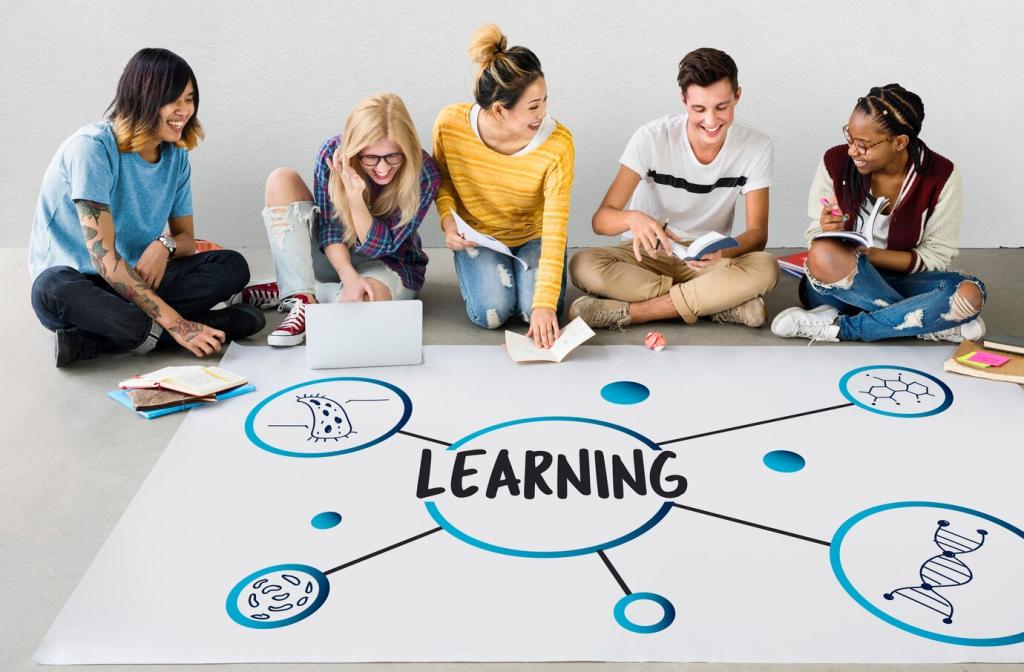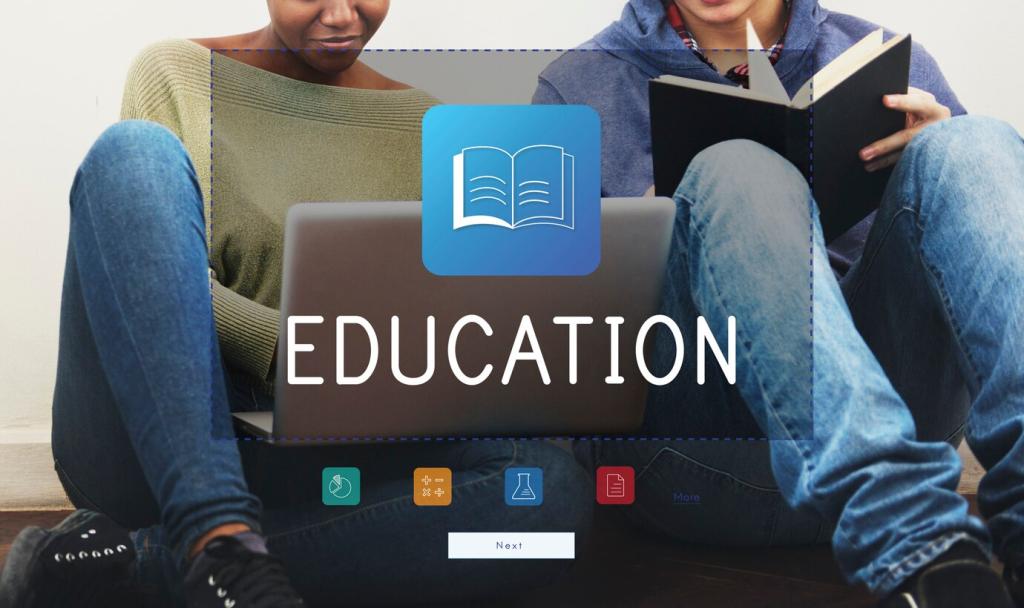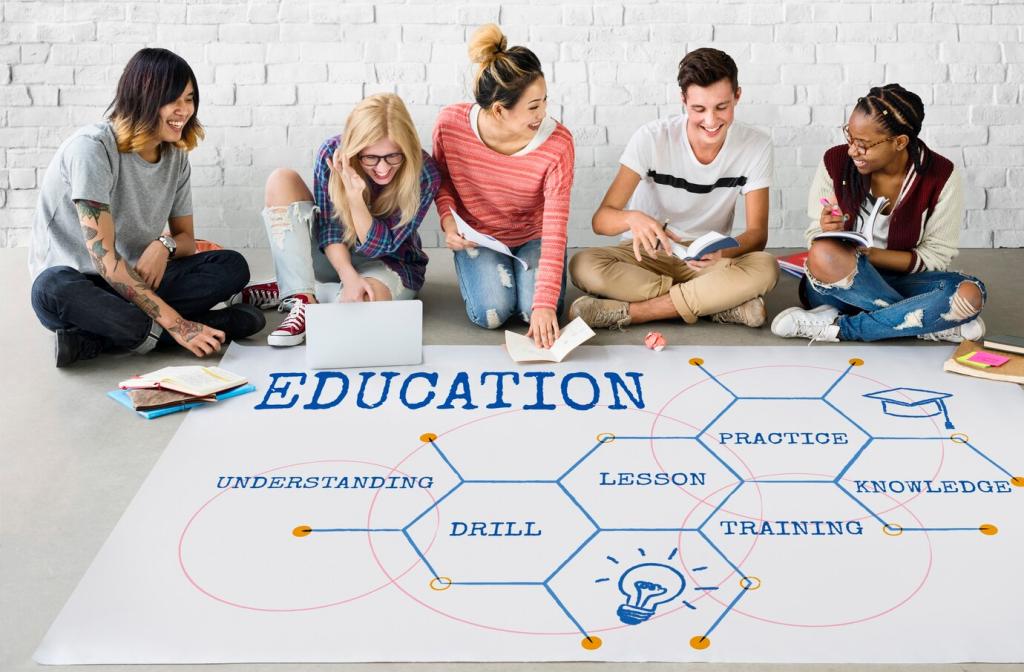Level up your tech journey with hands-on practice, immediate feedback, and collaborative challenges that turn theory into instinct. Expect lab stories, data-backed strategies, and human-centered tips that make learning stick. Theme chosen: Enhancing IT Skills with Interactive Methods. Subscribe, comment, and tell us where you want to grow next.
Why Interactivity Transforms IT Learning
Interactive exercises exploit the testing and generation effects, forcing recall and invention rather than passive recognition. That mental effort forges stronger pathways, so commands, patterns, and troubleshooting steps become faster, more accurate, and confidently repeatable under real production pressure.
Hands-On Labs That Stick
Ephemeral labs mirror real stacks—containers, virtual networks, and service mocks—yet vanish with a reset. Learners safely experiment, try bold refactors, and run migrations without fear, then rebuild from templates to repeat key workflows until confidence becomes second nature.
Hands-On Labs That Stick
Well-designed prompts hint at solution shape without spoiling discovery. Rubrics, unit tests, and progressive hints keep learners moving while protecting the thrill of solving. The result is better retention and an authentic sense of earned competence.



Interactive Methods Across IT Domains
Short, repeatable coding katas sharpen fundamentals while pairing shares mental models in real time. Switching driver and navigator roles encourages empathy, exposes habits, and turns implicit problem framing into explicit, reusable strategies for debugging and architecture decisions.
Interactive Methods Across IT Domains
Teams build, break, and rebuild cloud systems during time-boxed exercises. Injected failures test observability, autoscaling, and cost controls. Whiteboards meet dashboards, and everyone learns why small design choices accumulate into resilience—or painful, noisy fragility when traffic surges unexpectedly.
Story: The Helpdesk Team That Leveled Up
The Bottleneck Everyone Felt
Tickets spiked after a migration, and escalations ballooned. The helpdesk team knew the tools but hesitated on edge cases. Documentation existed, yet rarely solved the tricky half of issues where logs contradicted expectations and users needed calm reassurance.
The Interactive Shift
The team added weekly scenario labs using anonymized tickets and seeded failures. They practiced calm talk tracks, log triage, and rollback steps inside sandboxes. Instant feedback and peer reviews normalized experimentation, revealing quick wins hidden inside routine procedures.
Ninety Days, Clear Results
First-contact resolution rose, escalations dropped, and satisfaction climbed. New hires became productive faster because labs captured tribal knowledge. Most importantly, morale improved as people felt capable, curious, and proud of skills they could demonstrate under pressure.
Data-Driven Learning Paths
Baseline quizzes, code checks, and scenario walkthroughs reveal strengths and blind spots. Instead of generic curricula, learners receive targeted challenges that focus effort where it matters, saving time while improving the likelihood of visible impact at work.

Community and Collaboration
Small groups rotate reviewing labs with respectful, specific feedback. By articulating suggestions, reviewers learn faster, and authors gain clarity. Over time, patterns emerge, reducing duplicate mistakes and raising the team’s shared baseline for quality and reliability.

Tools and Platforms That Enable Interactivity
Store labs as code with branches, tests, and pull requests. Learners practice professional workflows while reviewers improve clarity. Versioning preserves history, enabling steady improvements and quick rollbacks if a lab update accidentally increases confusion or breaks compatibility.
Design Your First Interactive Sprint
Pick one workflow—deploying a service, debugging a failing test, or tuning indexes—and write observable outcomes. Tie every activity to those outcomes so completion signals genuine skill improvement rather than superficial box-checking or rote memorization.

